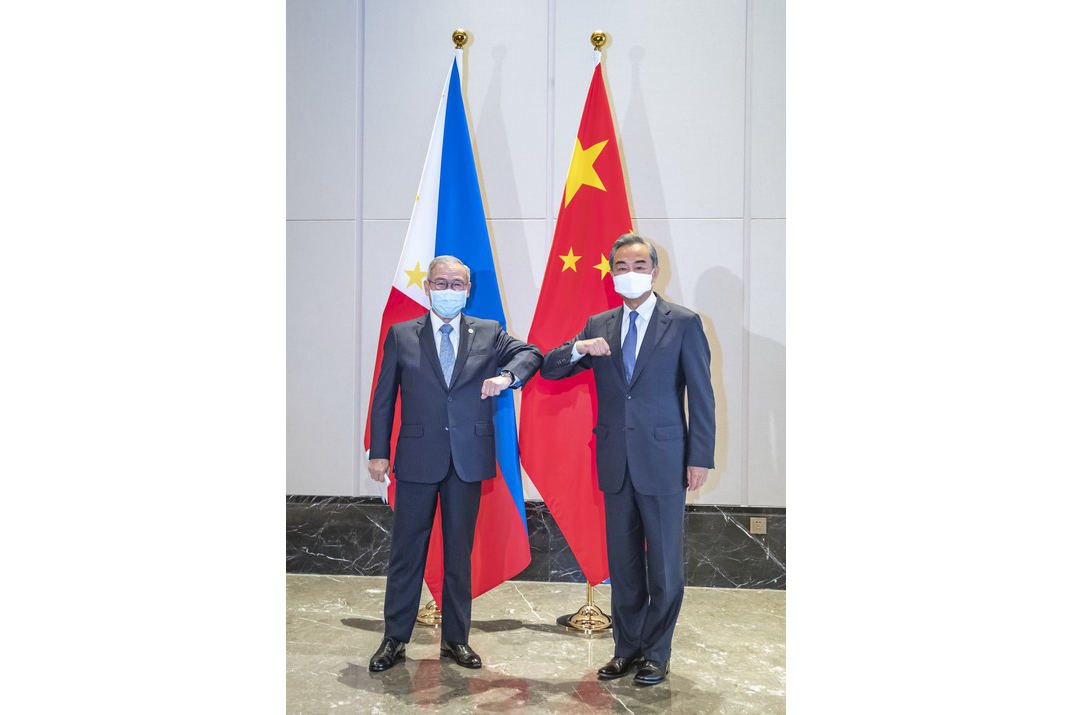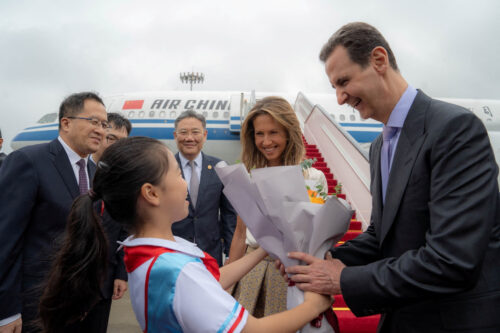Chinese vaccine diplomacy pays off with strengthened Southeast Asia ties
China and the Association of Southeast Asian Nations (ASEAN) held a meeting to mark 30 years of formal ties, and appeared to smooth over tense spots in relations — with the help of Chinese vaccine aid, which has focused on Southeast Asia.

As U.S. President Joe Biden tours Europe this week, shoring up American alliances with an explicit focus on “confronting the harmful activities of the governments of China and Russia,” China is doing something similar in Southeast Asia, strengthening ties partly to counter the U.S. in the region.
Beijing has been building influence with ASEAN, the 10-member Association of Southeast Asian Nations, for years. Several large developments in the past year include:
- The RCEP (Regional Comprehensive Economic Partnership), a massive trade deal involving China, ASEAN, and several other Pacific nations, was signed last November after eight years of negotiations.
- Chinese vaccine diplomacy has focused on Southeast Asia, with Indonesia — the world’s fourth-most-populous country — being one of the first recipients of a Sinovac shipment last December and now the leading foreign recipient of Chinese vaccines overall.
- The U.S. made plans to compete with Chinese vaccine diplomacy by distributing 1 billion Johnson & Johnson shots with a special focus on Southeast Asia, but just a month after that plan was made, India — where the doses were supposed to be produced — was overwhelmed with its worst wave of COVID.
Chinese Foreign Minister Wáng Yì 王毅 hosted ASEAN counterparts in Chongqing, China, yesterday and today. The meeting marked 30 years of formal relations between China and ASEAN.
- Wang highlighted COVID aid, saying “that China had already delivered 100 million vaccine doses to ASEAN nations along with other pandemic-fighting materials and technical help,” and promised more aid to come, per the AP.
- A joint statement from the two co-chairs of the meeting, Wang Yi and Philippines Foreign Minister Teodoro Locsin Jr., said that ASEAN “greatly appreciates China’s provision of vaccines, medical supplies and technical assistance,” and praised the “wisdom of close collaboration on pandemic control and socio-economic recovery.”
- On the South China Sea, the Global Times says that Locsin noted “some differences between the two sides exist,” but they “should not affect the rising bilateral friendship and practical cooperation in various fields.”
- Yes, this is the same Locsin who lobbed crude insults at China over South China Sea disputes just one month earlier — he later apologized and said that Philippine President Rodrigo Duterte had told him that “only the President can curse.”
- The joint statement also said the parties agreed to “exercise self-restraint in the conduct of activities that would complicate or escalate disputes” in the South China Sea.
More on current China-Southeast Asia relations:
- Indonesia is quietly warming up to China / Foreign Policy (paywall)
“Once inching toward war, the Asian giants are getting closer — while Washington seems unserious and disengaged.” - How China’s vaccine diplomacy brought bosom buddy Cambodia even closer / Reuters
- China’s relationship with Southeast Asia, explained / The China Project
“Southeast Asia has become a ‘battleground’ for U.S.-China competition — much to the dismay of the people there.” - Southeast Asia in the dragon’s shadow: A conversation with Sebastian Strangio / Sinica Podcast
- ASEAN, China foreign ministers discuss COVID-19, South China Sea and Myanmar / Straits Times






